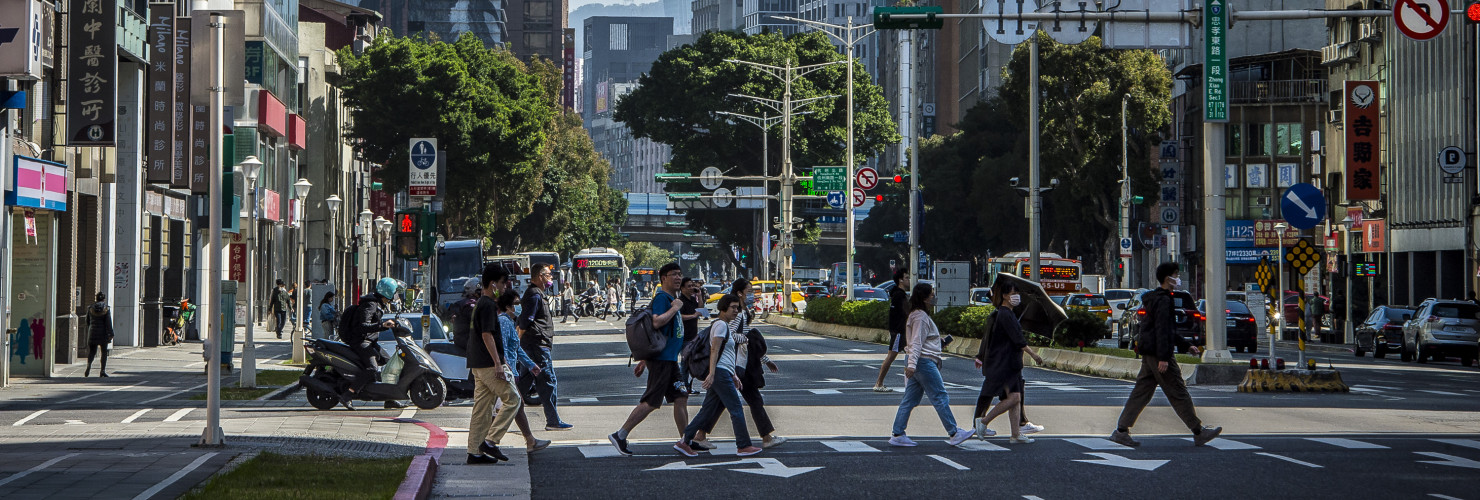

Taiwan’s election and cross-strait relations – three candidates, one goal: maintaining the status quo
In the first of a series of MERICS analyses ahead of voting day on January 13, 2024, Claudia Wessling warns that the risk of China escalating tensions will remain high, even if Beijing’s preferred party wins. This article is part 1 of our series on Taiwan’s 2024 presidential election.
Regardless of who wins Taiwan’s presidential election in January, the island has already once again lived up to its reputation as a vibrant and at times turbulent democracy. Opposition candidates Hou You-yi from the Kuomintang (KMT) and Ko Wen-je of the Taiwan People's Party (TPP) in late November awkwardly tried to explain their failure to form the promised joint ticket against Vice President Lai Ching-te (aka William Lai) of the ruling Democratic Progressive Party (DPP). Their joint press conference went viral in Taiwanese media.
The election race has tightened to become too close to call
This failure to unify the more China-friendly opposition has left the ruling DPP with a chance of claiming its third presidency in a row (term limits prevent incumbent Tsai Ing-wen from running again) – even though the three-way race has tightened to become too close to call. Beijing has called Lai and his running mate “separatists” and signaled that Taiwan would be better off under renewed KMT rule.
Whoever wins the election, risk of escalation in the region will remain high
But, whatever the result, the risk of an escalation in the region will remain considerable as long as Xi Jinping stays focused on “reunification.” European politicians must join the USA in insisting on the status quo in the Taiwan Strait.
Even if many Taiwanese appear more interested in domestic issues like stagnating wages, rising rents and electricity-supply security, the candidates’ differing stances on relations with China could yet have a decisive influence on the election. Lai has described it as a choice between “democracy and autocracy.” At the same time, he has been careful not to be seen as an advocate of independence. Like President Tsai, he argues Taiwan is de facto already an independent nation and should focus on looking for support from like-minded partners – for example, he increased interaction with Japan recently.
Both opposition candidates have built their strategies on accusing Lai’s DPP of knowingly risking war with China. They say that by taking too confrontational a stance, the government has provoked a suspension of long-standing, traditional communication channels. KMT candidate Hou says both countries would profit from increased dialogue and economic cooperation, but carefully avoids any statements that could make him appear too Beijing-friendly. TPP-founder Ko describes himself as a pragmatist pursuing a course between KMT-style rapprochement and the DPP’s disengagement.
Beijing is again showing its soft spot for the party yearning for “one China”
Although the Chinese Communist Party chased the KMT from the mainland to Taiwan in 1949, it is now Beijing’s preferred party with its historical yearning for “one China” (albeit under the KMT). In public communication, China’s government not only labels the DPP candidate a separatist in search of "independence," but also a "warmonger," and its supporters target social-media users with manipulative messaging and even fake news. On the military level, a sharp increase in naval and aerial maneuvers is meant to be a clear warning to the Taiwanese that their decision at the ballot box might worsen the situation – the same message as on the economic level.
But Taiwan’s voters are all too aware of China’s attempts to influence them, bringing the risk that Beijing’s interference may hinder rather than help the KMT. Both opposition candidates are eager to avoid the impression of being in any way inclined towards “reunification.” A regular survey by the Election Study Center at National Chengchi University in Taipei shows that only a very small percentage of respondents – most recently, 1.6 percent – thinks unification with China is desirable. A large majority wants to maintain the status quo and decide on the future path "only later" – if at all.
Taiwan’s next president will need to avoid provoking both China and his electorate
The proportion of people in Taiwan self-identifying as Chinese is steadily decreasing. That June 2023 poll by National Chengchi University said 2.5 percent of respondents saw themselves as Chinese, 30.5 percent as both Chinese and Taiwanese, and almost 63 percent as solely Taiwanese. This is partly due to a generational shift, but the island’s citizens are also put off by the nationalist furor coming from China. It seems that many have difficulty in identifying with a country that is constantly threatening them and whose authoritarian regime is so fundamentally different from Taiwan’s democratic system. All of this suggests the dangers of an overly pro-Beijing Taiwanese presidency. Back in 2014, the KMT already felt the fallout from being too China-friendly, when the Sunflower Movement protested against a free trade agreement with China.
Regardless of party affiliation, Taiwan’s next president will have a strong incentive to avoid provoking both the Chinese government and the Taiwanese electorate. This will not stop Beijing stepping up naval maneuvers, blockade exercises and military flights into Taiwan’s airspace in the event of a DPP victory or airing options about a “peaceful and gradual” unification should the KMT come out on top.
